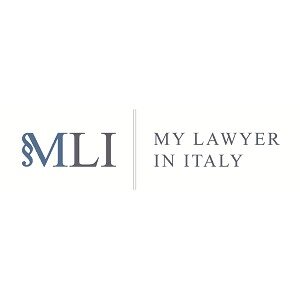Best Trusts Lawyers in Rome
Share your needs with us, get contacted by law firms.
Free. Takes 2 min.
List of the best lawyers in Rome, Italy
About Trusts Law in Rome, Italy
Trusts in Rome, Italy are legal instruments that allow individuals to transfer ownership of their assets to another person or entity, known as the trustee. The trustee manages and administers the assets on behalf of the beneficiaries. Trusts can be established for various purposes, such as to protect assets, manage wealth, or facilitate estate planning.
Why You May Need a Lawyer
If you are considering setting up a trust or need assistance with an existing trust, it is advisable to consult with a qualified lawyer specializing in trusts. Some common situations where you may require legal help in trusts include:
- Creating a trust to protect your assets and ensure their proper management
- Navigating complex legal procedures involved in setting up a trust
- Updating an existing trust to reflect changes in your circumstances or wishes
- Resolving disputes or conflicts related to trusts
- Understanding the tax implications of trusts and minimizing tax liabilities
Local Laws Overview
In Rome, Italy, trusts are governed by various laws and regulations, primarily the Italian Civil Code. Some key aspects of local laws that are particularly relevant to trusts include:
- Trust Formation: Establishing a trust requires precise adherence to legal requirements, including drafting a trust deed and appointing a trustee.
- Roles and Responsibilities: Trustees are bound by fiduciary duties and must act in the best interests of the beneficiaries.
- Trustee Appointment: The appointment of a trustee must be carefully considered, as they will be entrusted with managing and administering the assets in the trust.
- Beneficiary Rights: Beneficiaries have certain rights, including the right to information about the trust and its assets.
- Taxation: Trusts may have tax implications, and it is important to understand the applicable tax laws and obligations.
Frequently Asked Questions
Q: How long does it take to establish a trust in Rome, Italy?
A: The timeline for establishing a trust can vary depending on various factors, including the complexity of the trust structure and the efficiency of the legal procedures. It is advisable to consult with a lawyer to understand the estimated timeframe for your specific situation.
Q: Can I appoint myself as the trustee of my own trust?
A: Yes, it is possible to appoint yourself as the trustee of your own trust. However, it is important to consider the legal and practical implications of doing so. A lawyer can provide guidance on the best approach based on your specific goals and circumstances.
Q: Are there any tax benefits associated with trusts in Rome, Italy?
A: Trusts may offer certain tax benefits, such as potential reductions in estate taxes or income tax planning opportunities. However, it is crucial to understand the specific tax laws and regulations applicable to trusts in Rome, Italy. Consulting a tax specialist or lawyer is recommended.
Q: Can a trust be revoked or amended after it is established?
A: In some cases, a trust can be revoked or amended after it is established. However, the ability to do so depends on the terms of the trust deed and local laws. It is advisable to consult with a lawyer to understand the options available for modifying or revoking a trust.
Q: What happens to a trust if the trustee passes away?
A: When a trustee passes away, it is important to have contingency plans in place. The trust deed should specify the process for appointing a successor trustee. If the trust does not address this, local laws will determine the procedure for appointing a new trustee. Seeking legal advice in such situations is crucial.
Additional Resources
For further information and assistance regarding trusts in Rome, Italy, you may find the following resources helpful:
- Italian Civil Code: The official legislation governing trusts in Italy.
- Italian Bar Association (Consiglio Nazionale Forense): A professional organization that can provide referrals to trusted lawyers specializing in trusts.
- The Ministry of Justice (Ministero della Giustizia): Provides information on legal matters and may offer resources related to trusts.
Next Steps
If you need legal assistance in trusts, it is recommended to take the following steps:
- Research and gather information about trusts to have a basic understanding of the concept.
- Consider your specific needs and goals regarding trusts.
- Locate and contact a lawyer specializing in trusts in Rome, Italy.
- Schedule a consultation to discuss your situation and receive personalized advice.
- Provide necessary information and documentation to the lawyer to help them assess your case.
- Follow the lawyer's guidance and work together to establish or manage your trust effectively.
Lawzana helps you find the best lawyers and law firms in Rome through a curated and pre-screened list of qualified legal professionals. Our platform offers rankings and detailed profiles of attorneys and law firms, allowing you to compare based on practice areas, including Trusts, experience, and client feedback.
Each profile includes a description of the firm's areas of practice, client reviews, team members and partners, year of establishment, spoken languages, office locations, contact information, social media presence, and any published articles or resources. Most firms on our platform speak English and are experienced in both local and international legal matters.
Get a quote from top-rated law firms in Rome, Italy — quickly, securely, and without unnecessary hassle.
Disclaimer:
The information provided on this page is for general informational purposes only and does not constitute legal advice. While we strive to ensure the accuracy and relevance of the content, legal information may change over time, and interpretations of the law can vary. You should always consult with a qualified legal professional for advice specific to your situation.
We disclaim all liability for actions taken or not taken based on the content of this page. If you believe any information is incorrect or outdated, please contact us, and we will review and update it where appropriate.














